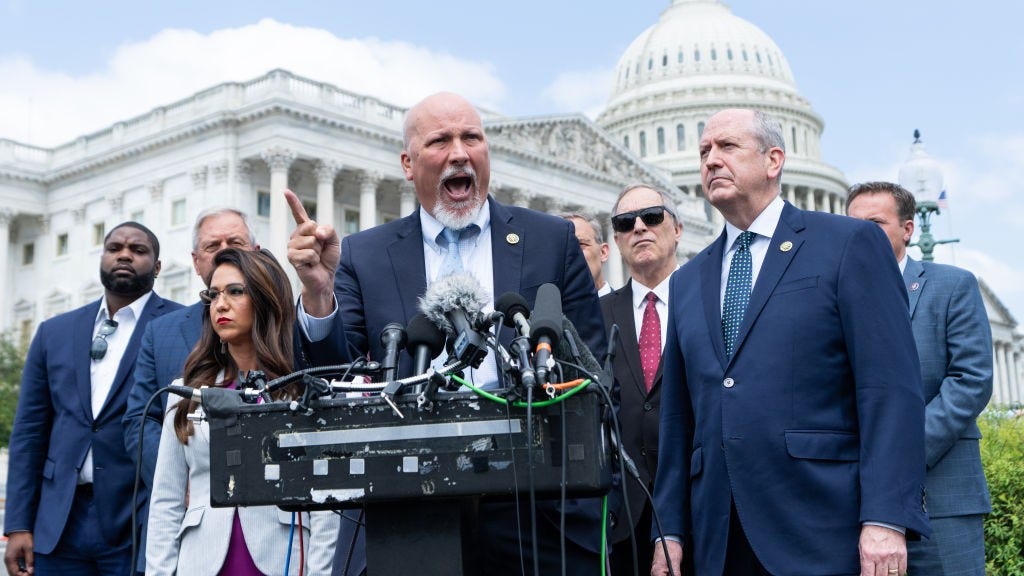The ultra-conservative House Freedom Caucus is taking a hardline stance on avoiding a government shutdown unless a short-term spending bill is tied to a bill requiring proof of citizenship to register to vote. They are also calling for a spending plan to extend until the new year, with hopes of former President Trump returning to the White House. This puts them in opposition to their more traditional GOP colleagues, who are looking to finish the government funding process by the end of the year. With only half of the appropriations bills passed in the House and none in the Senate, a short-term extension of current funding levels is likely necessary to keep the government running past September 30.
Senior Republicans, including House Appropriations Chairman Tom Cole, have acknowledged the need for a short-term bill, known as a continuing resolution (CR), to prevent federal offices from closing and federal employees from being furloughed. The House Freedom Caucus is calling for House Republicans to continue passing all 12 appropriations bills to cut spending and advance policy priorities. If that is unsuccessful, they suggest extending government funding until early 2025 to avoid a lame duck omnibus that preserves Democrat spending and policies. They are also pushing for the inclusion of the SAVE Act in the CR to prevent non-citizens from voting, in line with President Trump’s wishes.
The House passed the Safeguarding American Voter Eligibility (SAVE) Act with bipartisan support last month, but the bill is opposed by the White House and may not get a vote in the Democratically-held Senate. House Freedom Caucus members are advocating for its inclusion in the final CR, but Cole has expressed interest in attaching something with wider bipartisan appeal, such as supplemental disaster relief funding. The ongoing debate over government spending has led to historic levels of discord in the 118th Congress, with GOP rebels pushing for conservative policy priorities to be included in spending bills or risk a shutdown. However, leaders on both sides are looking to avoid the political fallout of a shutdown so close to the upcoming November election.
Last year’s spending fight resulted in the removal of ex-Speaker Kevin McCarthy by some of his own GOP colleagues after he supported a “clean” short-term funding extension in September. The House Freedom Caucus is standing firm on their demands, which could lead to a messy fiscal fight as lawmakers navigate the looming government shutdown deadline. While the House Freedom Caucus is pushing for a CR that includes the SAVE Act, their more traditional GOP colleagues are focused on finding bipartisan solutions to keep the government running smoothly. The outcome of this debate could have significant implications for government funding, the upcoming election, and the overall budget process in Congress.


